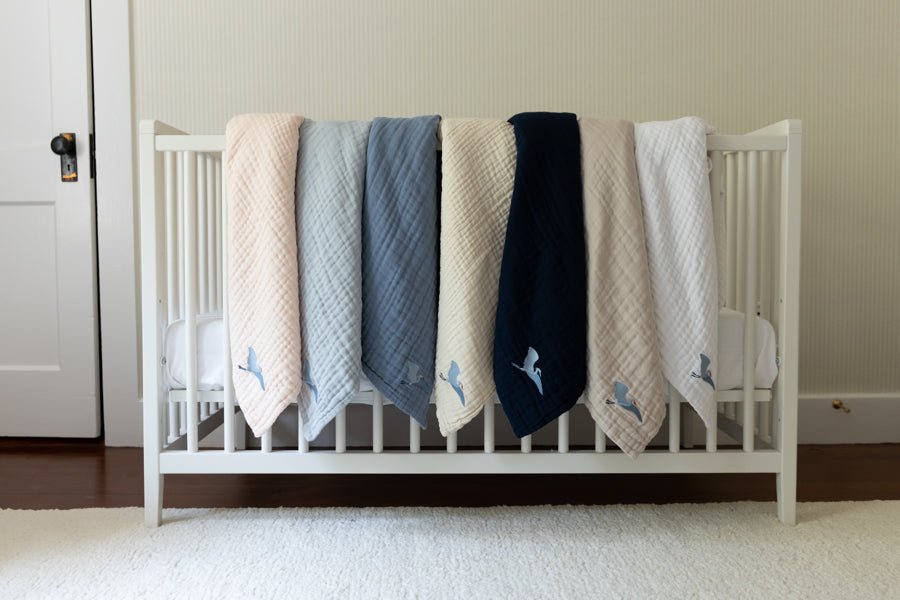Once upon a time, in a small town in Maine nestled up against a deep water lake, there lived a middle aged woman named Sarah. She was known for valuing a good night's sleep and recognizing the value of organic products in her home. On a muggy July night after a rain, Sarah was unable to sleep, kicking off her down comforter but wanting more than just a sheet. With windows open, she listened to the sounds of the loons calling out at night and decided to check on her baby and toddler in the next room. Instead of sweating or tossing and turning, they lay dreaming under their lightweight muslin blankets. Their skin was warm to the touch, but not hot to the touch. The blanket was whisper-soft to the touch. Under those breathable lightweight swaddles, the boys' body temperature was regulated ensuring they could dream their dreams all night long despite the heat. Sarah wanted one of these blankets for her own king-sized bed.
Sarah's fondness for organic textiles sprouted from her growing understanding of the immense benefits organically grown fabric offered for her family's health. While conventional textiles were often processed with harsh chemicals, organic textiles were grown and manufactured without the use of toxic synthetic pesticides or fertilizers. Organic textiles protected her sensitive skin from irritations and allergies, but they also ensured her body was free from the harmful effects of chemical residues that could seep into pores. Inherently breathable, organic muslin would allow her skin go breathe freely, reducing the risk of bacterial infections or rashes.
Sarah set out make adult-sized blankets made of this healthy, breathable fabric called gauze to some and muslin to others. She connected with a small, organic mill in the southern part of India who pays workers a living wage and ensures workers were not exposed to harmful chemicals or unsafe working conditions. Gray Heron was born.
Sarah sleeps easy at night under her Gray Heron. Not only does she feel the soft, breathable muslin against her skin, she knows that by choosing organic textiles for Gray Heron, she is contributing to a healthy environment. She has a great satisfaction at the end of the day, knowing that each customer is playing a part to preserve our ecosystem, ensuring a world with fewer toxins in the air, water and soil. Slowly, the story of Gray Heron is spreading.




